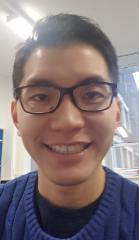
Dr Lim graduated from the University of Liverpool in 2011 where he obtained his medical (MbChB) degree. He was successful in obtaining a specialist registrar training in haematology within Merseyside. During his training he has developed a research interest in understanding specific mechanisms of chemotherapy induced toxicity and its' acquired resistance, particularly by assessing its' effects on a patient's immune system.
This has led to his attainment of the MRC Clinical Pharmacology PhD post in October 2019 with Prof Andrew Pettitt at the University of Liverpool, with the aim of investigating the effects of different chemotherapy agents on the immune system in patients with lymphoprolifetive disorders, and how these immune effects may lead to increased drug toxicity or drug resistance.
Application of Mass Cytometry to Investigate Immunomodulatory Effects of Chemotherapy in Lymphoproliferative Disorders.
The development and progression of cancer is now recognised to be facilitated by the immune system’s inability to detect and eliminate cancer cells. Therefore, it is unsurprising that the modification of a patient’s immune system to recognise and target cancer cells leads to cancer eradication. This has formed the basis for immunotherapy use, harnessing one’s own immune system to fight cancer. In fact, when studied closely, many chemotherapy agents given to exert direct destructive effects on cancer cell also play a role in modifying one’s immune system to detect and fight cancer, which may have an equally important role in cancer eradication. We believe understanding the immune effects of chemotherapy will help us understand why and how cancer patients develop chemotherapy resistance, or severe infections after receiving chemotherapy.
In this project, we aim to analyse immune cells of Non-Hodgkin’s lymphoma patients receiving chemotherapy with up-to-date techniques and equipment and correlating the results with patient’s response to treatment. In doing so we may identify features that predict these undesirable outcomes, which will aid clinicians to make accurate treatment decisions in the future, and to contribute to the future development of new drug combinations that optimises anti-cancer effects of immune cells.
Working with Industry
Dr Lim is currently working with Roche. He says:
“I am currently at the end of my 1st year on the scheme, with Roche as my industry partner. Throughout the application process of this scheme and in the initial phase of my PhD I was able to discuss my project with my industry research supervisor, who has given me a lot of insight from an industry perspective and has shared how different ideas and early research bear fruition in a clinically tangible ways from his experience. This has broadened my perspective, and has contributed to my future aim of becoming a clinician scientist.”
Back to: North West England MRC Fellowship Scheme in Clinical Pharmacology and Therapeutics